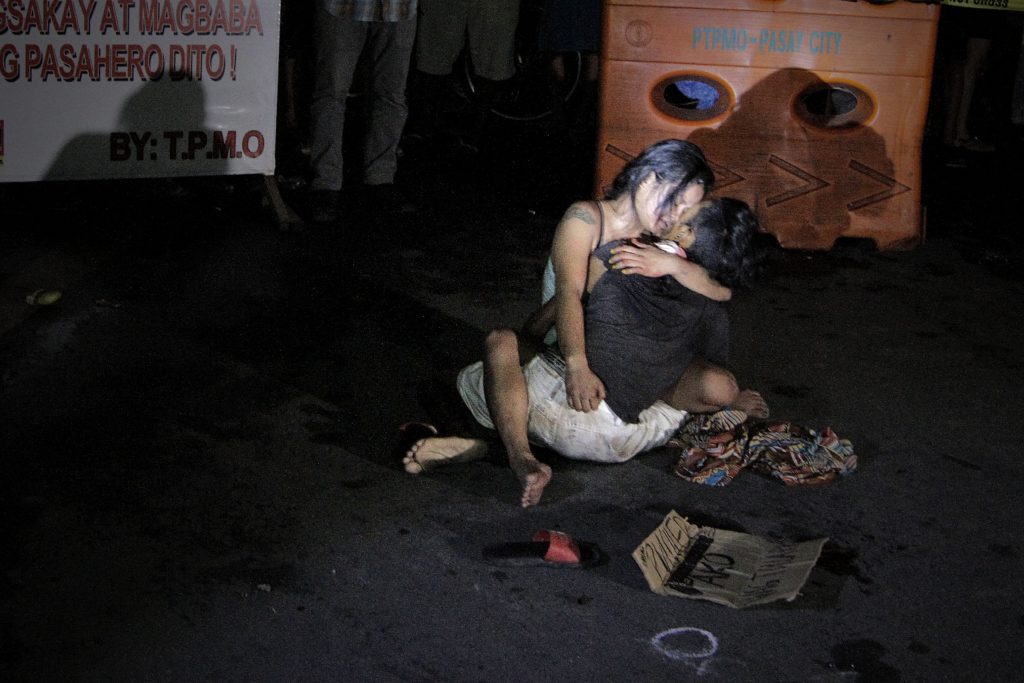Human Rights Watch (HRW) noted what it described as “possible improvement” in the action of the Philippine National Police in investigating alleged abuses related to the government’s “war on drugs.”
“This could be a breakthrough,” said Carlos Conde, senior Philippines researcher for HRW, in a dispatch released on Wednesday, May 26.
He credited the “hopeful developments” to the new National Police chief, Gen. Guillermo Eleazar, “a well-regarded police official.”
“So far, he’s been saying all the right things, even promising to rid the [police] of ‘scalawags,’” noted Conde.
“But are the reforms he has promised achievable and sustainable? That’s not clear,” he added.
On Monday, May 24, Philippine Justice Secretary Menardo Guevarra announced that the National Police will allow the department access to the records of 61 cases that implicate police officers on alleged abuses in the government’s “war on drugs.”
The Department of Justice has earlier promised the United Nations Human Rights Council that it would investigate some of the killings.
In February, Guevarra disclosed to the council that police violated internal protocols in half of the 328 cases it examined.
Since the “drug war” began in 2016, only one case has resulted in a conviction of law enforcement officers.
The International Criminal Court’s prosecutor is currently examining whether the “drug war” killings in the Philippines warrant a full investigation.
Conde said that if Eleazar is serious about reforms in the National Police, “he should ensure the police’s full cooperation with investigators into the ‘drug war’ killings and take more concrete steps to hold abusive officers accountable.”

On Wednesday, Eleazar expressed willingness to provide the Department of Justice access to the records of more than 7,000 people allegedly killed in police anti-drug operations.
“As long as the [Justice department] requested for the availability of this, we will provide them with this information,” said the police official in a television interview.
While only 61 police operations resulted in the filing of administrative charge against police personnel, Eleazar said all incidents that involved the deaths of the suspects were investigated by police’s Internal Affairs Service.
The police chief noted that they had concerns with available evidence as families of the suspects are not inclined to help the investigation.
“Of course we’ve heard so many allegations but most of the family of the victims or the suspects refused to [co]operate and give information to the police … that is the basis of the conduct of the administrative cases.”
The National Union of Peoples’ Lawyers also expressed guarded optimism on the recent move by authorities.
“Unless the [police] now recognizes (that) there is fundamentally wrong with the drug war campaign and boldly admits that the bloody trail leads all the way up, and until it becomes fully transparent, very thorough, objectively fair and truly professional, there are lingering doubts the [Philippine National Police] can do something impactful under the present political climate in ensuring legal accountability for abuses,” read the statement of the lawyers’ group.
Even as the group welcomed the “openness” Eleazar and Guevarra, “there are lurking badges that show it might be another tokenistic and cynical mirage, a puny, even if sincere, desire at real institutional reforms that actually go far beyond them alone.”
The group said “the best thing to do is to completely and totally open any and all files, documents, records, and uncontaminated evidence to an impartial scrutiny by an independent body.”
Human rights groups estimated that over 25,000 people have been killed in the government’s “drug war” since President Rodrigo Duterte came to power in 2016.
The police, however, maintained that there were only about 7,000 “drug war” deaths during the same period.